:quality(80)/business-review.eu/wp-content/uploads/2018/07/environment-br.jpg)
Business Review brings you an event that discusses environmental protection with a focus on waste management through a different approach. At the “Environmental and Sustainability Summit”, we’re taking a solution-oriented approach, focusing instead on the people and existing implemented projects that offer answers and on partners that have made an impact.
Here are the main statements from the event.
Panel 1: Projects and best practices that have been implemented successfully by NGOs and companies
Roxana Puia – PR Manager | ENVIRON ASSOCIATION
- Electronic waste and batteries are no different from other types of waste in that they stick around in people’s homes for quite a long time and people pass them on to each other, essentially reusing them
- We have a series of campaigns we are developing in schools, over 2,000 education units in Romania – we reward children for recycling through points they can use to purchase items from an online platform – but some children have started to donate their points to families in need instead of using the points themselves
- Another one of our campaigns is rewarding employees in companies for recycling waste generated by the office environment
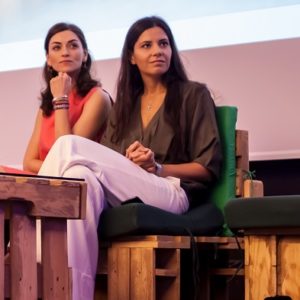 Our most recent education and awareness program is “Romania Recycles”, conducted together with local authorities – we see that Romanians want to recycle as long as solutions are provided and if they receive something in return – our objective is to transform the campaign’s name from a wish into a reality
Our most recent education and awareness program is “Romania Recycles”, conducted together with local authorities – we see that Romanians want to recycle as long as solutions are provided and if they receive something in return – our objective is to transform the campaign’s name from a wish into a reality- Local authorities and mayors admit that they need to find a solution and although it’s sometimes difficult to convince them to help us with permits and promotion, they were easier to convince when they saw that we would do most of the work
- We’ve agreed with authorities to redo these campaigns each trimester, but in some bigger communities we’ve also installed fixed recycling points
Nicoleta Talpes – Managing Director | Media Image Factory
- Our campaign called “Every Can Counts” aims to collect aluminum cans, which are very valuable as plastic is becoming less popular
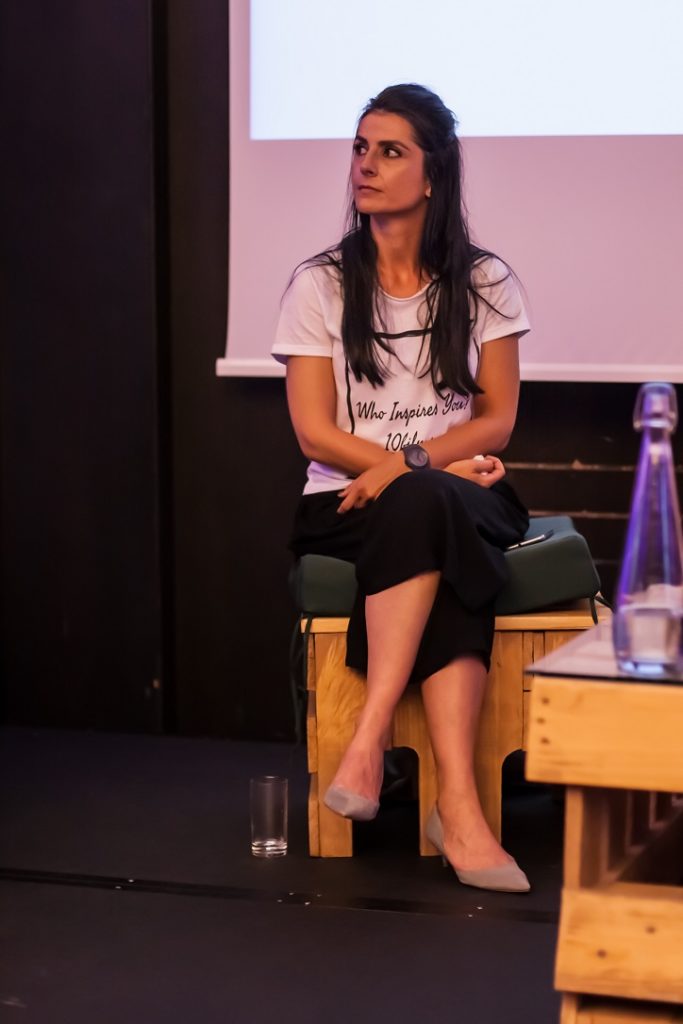
- Education is very important in this field
- There is no aluminum can recycling factory in Romania – the cans we collect are sent to recycling plants in Europe
- Companies that want to implement this program just need to contact us
- Positive examples matter and solutions matter – we need to offer people solutions for recycling
- Education and rewards should not be associated – if the message is heard and understood, there is no longer a need for rewards
Loredana Samoilă – PR Manager | Kaufland România
- We are trend-setters in sustainability and CSR, which are always integrated into business
- Kaufland’s sustainability strategy was not hard to implement, but we faced the challenge of being creative enough to reach our goals
- Kaufland’s Gradinescu project is going to be expanded to other cities, including Alba Iulia
- Our CEO is a promoter of sustainability and many of our projects have been a result of his dedication to this goal
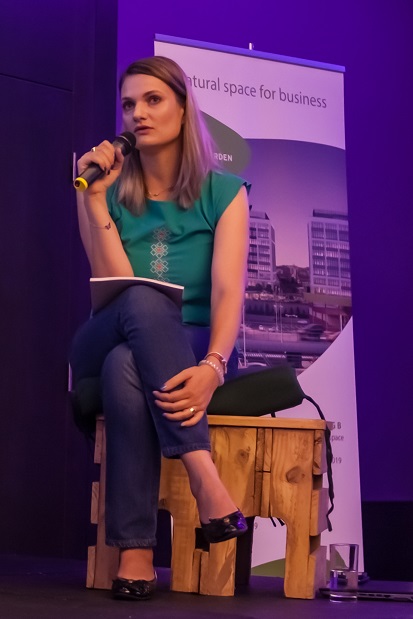 We encourage our employees to come to us with ideas for making processes more efficient and sustainable
We encourage our employees to come to us with ideas for making processes more efficient and sustainable- We’ve opened a CSR Academy for our employees, to encourage them to learn about the subject and come up with proposals
- Food waste is an issue for us – we’ve made PR efforts and been involved in various committees – internally, we’ve managed to implement high performance IT systems which allow us to see when certain products are close to their expiration date and then we can lower their prices
- We try to donate fruit and vegetables to zoos
- We support NGOs that aim to reduce food waste
- However, we need clear legislation to help us do more
- Today we’re launching a new marketing campaign to help people better understand what they buy and to encourage them to look for quality rather than quantity
- We offer our customers rewards for recycling (discounts) – when the discounts stop, legislation should help us continue to convince people to recycle
- For us, sustainability is part of the company’s DNA
- As a German company, we want to be efficient more than anything else
- On the long term, if we’re not careful as economic actors about what’s happening in society, there won’t be a society to sell our products to
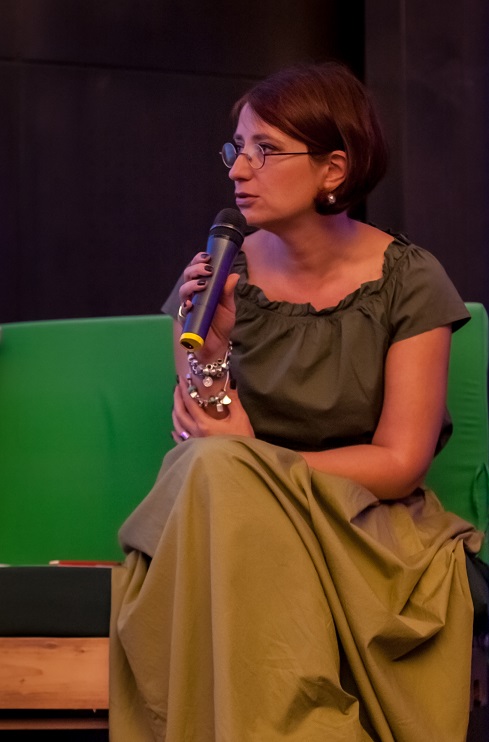
- Our sustainability strategy was not so much a revolution as it was a more organised approach to our already-existing practices and objectives
- It was an easy transition, we adapted our strategy to Romania’s specific laws and society
- Lidl owns all its 225+ stores, so we were already trying to make them more sustainable and efficient before we had a clear sustainability strategy
- Our new office building is ultra-modern and it was a big investment but it was worth it
- Our systems help us to avoid buying more than we need in our stores in order to reduce food waste
- Lidl donates products close to the end of their shelf life to organisations that can distribute them to people in need, and we do the same with cat and dog food in our stores
- Food waste isn’t an area for competition with other retailers – we want to work together to reduce food waste
- Schwarz Group, through its Romanian representatives – Lidl and Kaufland – will stop selling all single-use plastic by next year; until 2025, plastic use will be reduced by at least 20 percent, and own-brand products will have fully recyclable packaging
- We recycle packaging waste at the back of each of our stores
Maria Desmirean – Marketing Director | Biodeck
- Biodeck offers solutions in order to avoid single-use packaging
- Biodeck is part of Prodplast Group, which has been active for 60 years and 10 years ago it stopped placing single-use plastic on the market
- It’s very important to be responsible for what you place on the market
- Our products are 100 percent recyclable and compostable and they don’t leave microparticles behind
- Composting is at low levels in Romania – there have been many compost stations built using EU funds which were eventually closed – there is no law for compost and it’s not profitable as a business
- Currently we are in advanced talks with Iridex, the composting company near Bucharest, and we want to accelerate the adoption of a compost law
- NEPI Rockcastle has 17 commercial centers and office buildings in Romania
- Empty Shop – the idea came from our colleagues in Slovakia who had implemented it a few years ago; the original idea came from an agency in Brazil who decided to share it with the rest of the world after it was very successful in 2012
- Empty Shop meant that we opened a completely empty store in the middle of Promenada Mall in Bucharest, then expanded to 12 other commercial centers
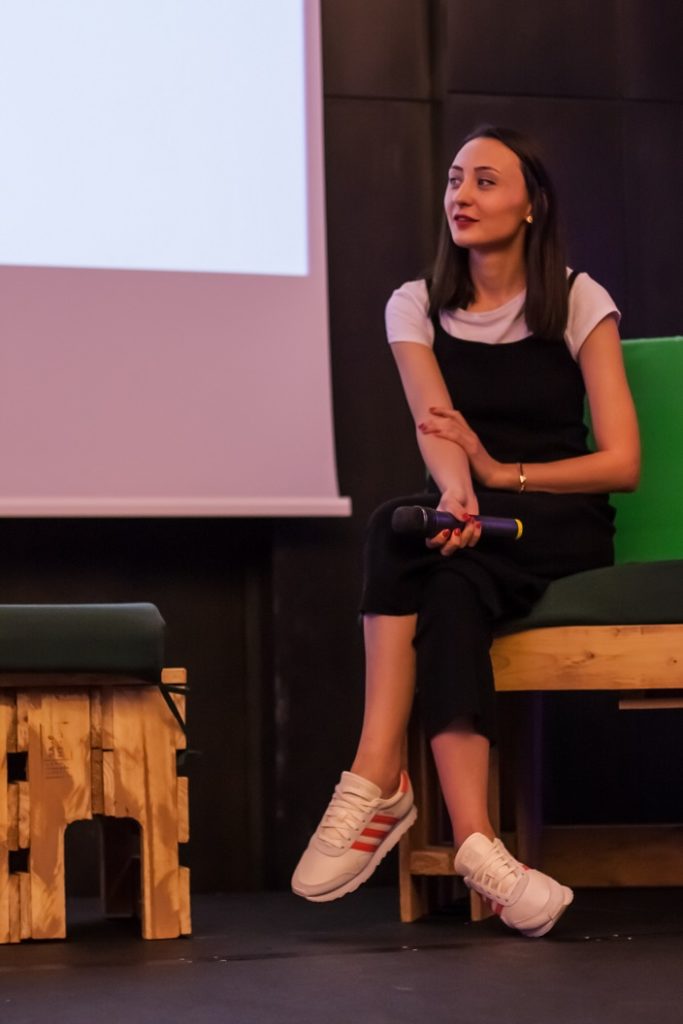 We learned that textile waste is a much bigger problem than we thought and that there are many families in Romania that can’t send their children to school because they don’t have anything to wear
We learned that textile waste is a much bigger problem than we thought and that there are many families in Romania that can’t send their children to school because they don’t have anything to wear- In our campaign we insisted that people carefully select what they donate
- We managed to collect 35 tonnes of clothes, much more than we had expected – we underestimated a need of our clients – to find a solution for the clothes they no longer wear but are still in good condition – they didn’t know what to do with them
- Right now we’ve started the process of cleaning and sending the clothes we collected to people who need them
- We want the next edition to be better organised and we want to expand it to our entire 9-country network, and possibly add more items, not just textiles
- Overwhelming positive reactions from both clients and retailers
Panel 2: Large public entertainment events (ex. Artmania festival, Blaj Alive, Awake) and their impact on the environment
- Legislation for environmental protection is very complicated and in the case of festival organizers we’ve learned that there are no requirements specifically dedicated to such events so they need to read the legislation
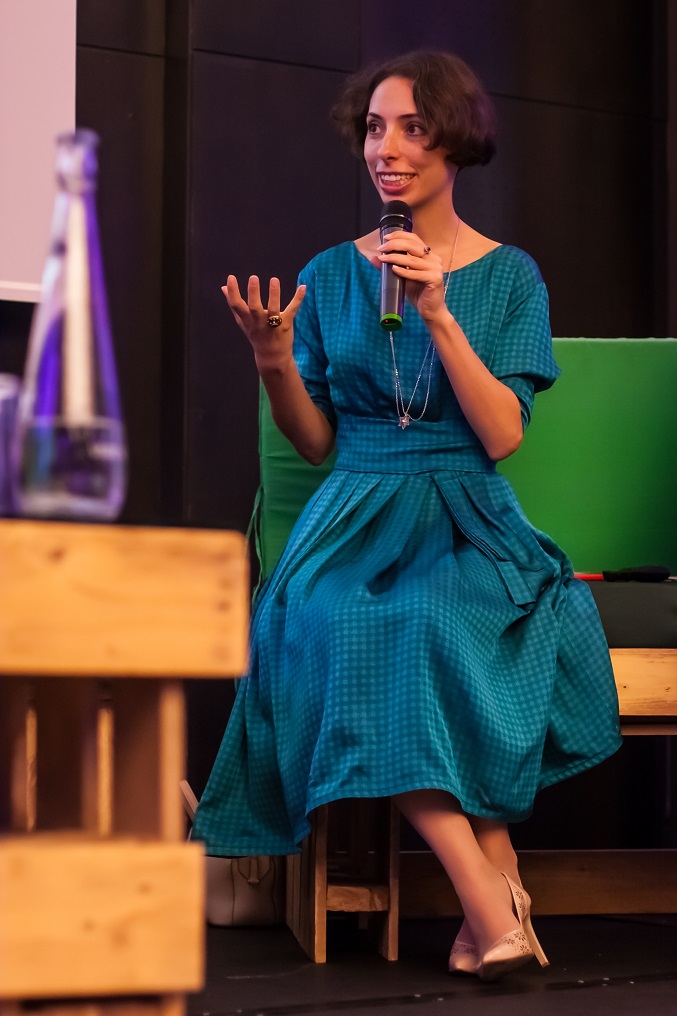 carefully and find their own practical solutions to follow it
carefully and find their own practical solutions to follow it - There are some areas where authorities are more active – for example in the sale of food the sellers need to ensure they have the necessary food safety and sanitary permits
- There are obligations for consumers at festivals and similar events in the legislation, but we need to take it from theory to practice
- For each festival, an authorization has to be obtained from local authorities, which also have the power to enforce legislation on recycling and pollution prevention
- The public system of waste management should get involved more
- The circular economy starts with the principle of putting on market products that have a lower impact on the environment
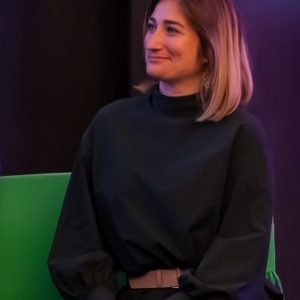 At Blaj Alive we started the separate collection process. In Blaj there isn’t separate collection of waste for the population
At Blaj Alive we started the separate collection process. In Blaj there isn’t separate collection of waste for the population- At Blaj festival, we target an audience that is not that experienced compared to Electric Castle. However, from the second day that people understood the collection system, they started using it; The key elements were the employees of the waste company that we paid to help us collect the waste from the festival. They moved the waste in areas where it could be transported for recycling
- 180 kilos – cardboard waste; 370 kilos – PET and plastic waste after 2 days of festival
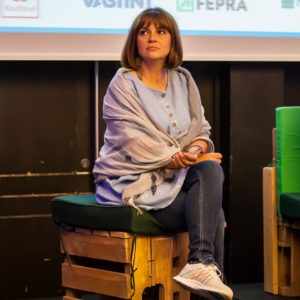
- A major problem at festivals are the banners, flags and other similar branding items that are made from different types of plastic – at AWAKE, we’ve decided to eliminate them completely, and we also don’t have any flyers, which would have been impossible 10 years ago
- The pollution from generators is a big problem. At AWAKE we build an energy point that covers half of the consumption. Next year, we want to reach full capacity and use solely electricity
- We work to reduce the carbon footprint at Electric Castle Festival
- Some 75-80 percent of the carbon footprint of a festival comes from the transport area
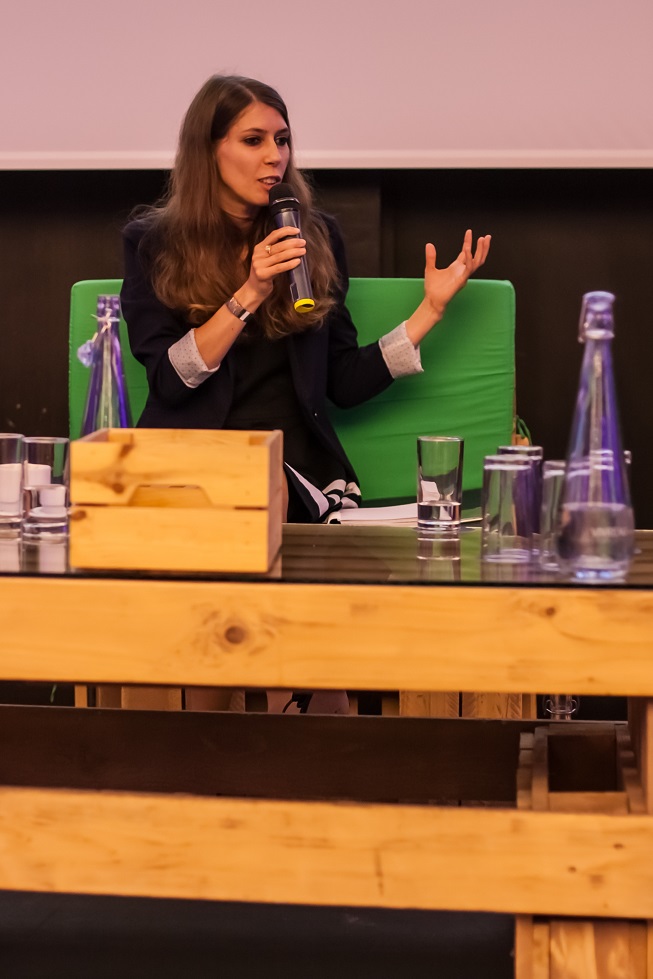 We started sustainability initiatives at Electric Castle starting with the second edition
We started sustainability initiatives at Electric Castle starting with the second edition- Electric Castle assumed the target of zero waste – this is a long term objectice
- This year we will have a stage that receives 50 percent solar and 50 percent kinetic energy
- We have built from scratch recycling stations as well as engaging visitors, educating them. We have eco-promoters
- We also have a recycling team
Andrei Cosuleanu – Board Member | Let’s do it, Romania!
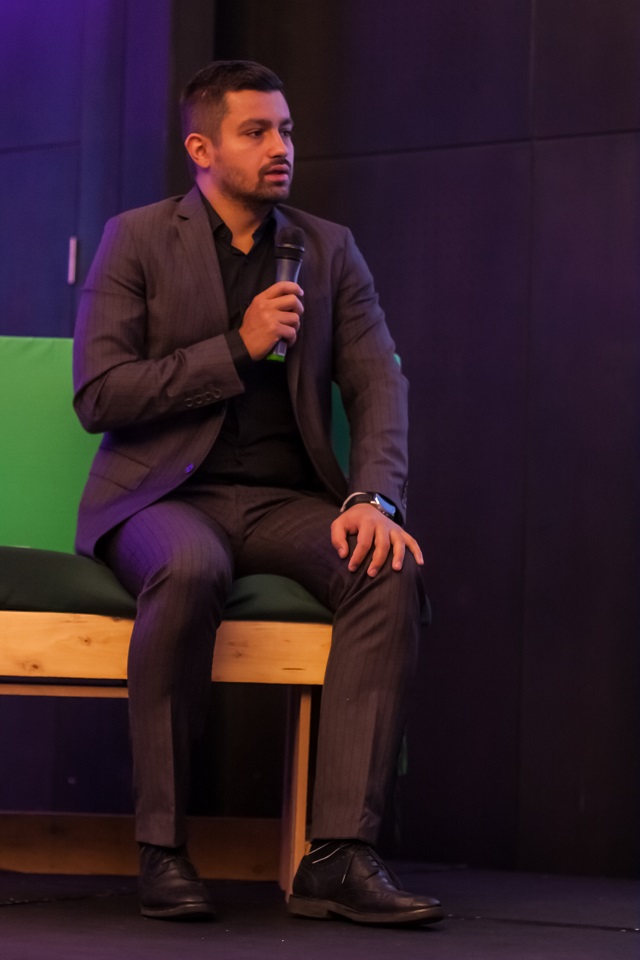
- The recycling is the last solution that people should understand – at festival you should ask how you can prevent the generation of certain kind of waste
- Smaller town halls that host festivals should be educated on waste management
Panel 3 Leadership in everything you do, leadership in environmental projects; the power to influence others to support your cause, to join you in your mission for this planet.
Hanny Bratu Ciocazanu, Marketing and Fundraising coordinator | WWF
- The financial side counts a lot in the protection of the environment
- Often times, we are antagonistic in the relation with authorities
- Right now, we are consuming one planet and a half, even two
Zoli Toth, Environmental activist
- I am one of the biggest recyclers in Romania; in 1997 I went to the landfill in Cluj-Napoca and got 12 barrels to start my own band
- In 2009, I promoted Earth Hour which in one year it reached 2 million Romanians

Companies, NGOs that did projects across the years today have better results for their business and in the relation with customers
- When we are talking about education, the results appear after several years – I will continue to say this
- The collection of waste has to be done in a more beautiful fashion
- Today, there are several textbooks for ecology – 10 years ago there was none
- Young people should have an education regarding the green sector
- I would invest in research in order to have a balance between what we produce and what we consume, alongside what we recycle
Entrepreneur Ionut Georgescu
- If we talk about how we create leaders at authorities – the question is what authorities?
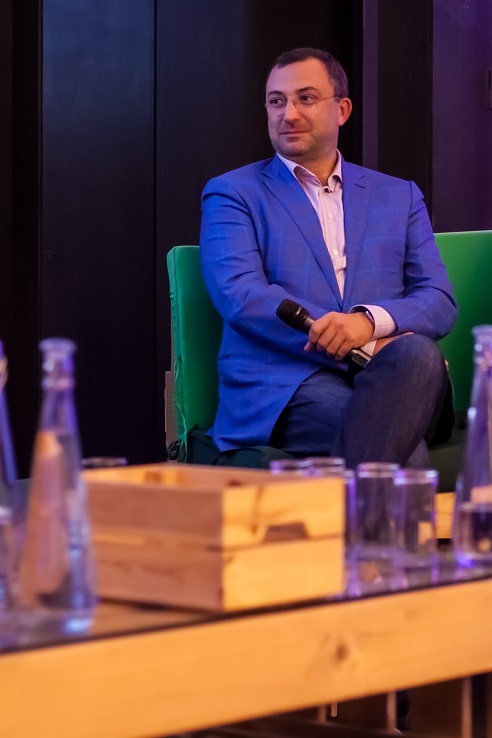
- We should start with the basis of the leadership, which is about language; Together we can create a backdrop and start thinking of a future
- At present, on authorities’ side, they don’t see the world as we do
- In 30 years, we haven’t been able to convince mayors why the storage tax is needed
- I would like to see the total transparency of the system regarding environment responsibility
- If we took a decision to transfer the property of the waste from the generator to the producer, and make an analysis on how the system works, there is a whole repositioning



:quality(80)/business-review.eu/wp-content/uploads/2024/04/Catalina-Burca-Andonie-Associate-si-Ionelia-Anton-Associate.jpg)




:quality(80)/business-review.eu/wp-content/uploads/2024/02/IMG_6951.jpg)

:quality(80)/business-review.eu/wp-content/uploads/2024/04/COVER-1.jpg)



:quality(80)/business-review.eu/wp-content/uploads/2024/04/cover-april.jpg)
:quality(50)/business-review.eu/wp-content/uploads/2023/03/business-review-buy-google-reviews.webp)
:quality(50)/business-review.eu/wp-content/uploads/2024/04/Rafaela-Nebreda-fondator-Imoteca.jpg)
:quality(50)/business-review.eu/wp-content/uploads/2024/04/Slide1.png)